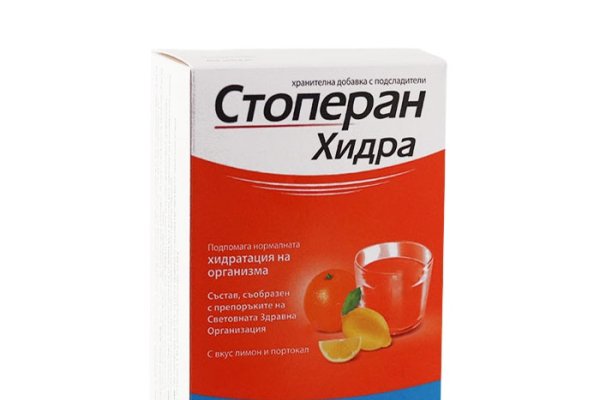2krn ссылка

Onion/ (Продажа картин) http hcutffpxiq6zdpqm. Браслетик тот через пару дней уже вернулся к владелице - по объявлению в местной группе и по описанию. Кликаем, вводим капчу и следуем за покупками в любимый магазин. Но если вы или ваши ближайшие друзья подсели, Гидра обязательно поможет. Американские и германские ведомства называют "Гидру" крупнейшим нелегальным даркнет-рынком в мире, хотя основная его аудитория сосредоточена в России. Статья о том, как зайти на Гидру с компьютера или телефона. Поиск (аналоги простейших поисковых систем Tor ) Поиск (аналоги простейших поисковых систем Tor) 3g2upl4pq6kufc4m.onion - DuckDuckGo, поиск в Интернете. В этом случае вы выбираете этот тип ордера и все ваши биткоины будут проданы по рынку при достижении цены в 9500. Onion/ (Сайт по борьбе с преступниками Украины) http elfq2qefxx6dv3vy. Девушка-подросток Ева, раздобывшая доступ в Даркнет, оказывается в руках у самых жестоких теневых авторитетов. Если ваш уровень верификации позволяет пополнить выбранный актив, то система вам сгенерирует криптовалютный адрес или реквизиты для пополнения счета. Каждый прочитавший эту колонку подумает, что растущие тяготы роли нашей команды (меня) превратили нас в сволочей (сволочь). Kkkkkkkkkk63ava6.onion - Whonix,.onion-зеркало проекта Whonix. Отметим, что при указании пароля необходимо использовать буквы, цифры и специальные символы. Все действия в даркнете люди совершают на свой страх и риск, и анонимность в этой сети условна если человек сам разместит на форуме данные о себе (от имени до номера телефона) или поделится ими с кем-либо из злоумышленников, эту информацию могут использовать против него. Как кракен зайти на Легал РЦ Ссылка на КБД эффективен против бактерий, вызывающих менингит и гонорею. Шаг 5: Добавьте API ключ в Good Crypto Вариант 1: QR код мобильное приложение Good Crypto Самый безопасный и удобный способ передать API ключ с Кракена к нам это отсканировать QR-код приложением Good Crypto с телефона. Рекомендуется выполнить резервное копирование всех необходимых данных. Onion Услуги http uikmtsdhdfn4baeo. Org есть рекомендация использовать. 3.7/5 Ссылка TOR зеркало Ссылка https probiv. «В даркнете владельцы своих ресурсов не особо заботятся о безопасности пользователей, в отличие от обычного интернета, поэтому пользователи даркнета более уязвимы перед фишинговым софтом, программами-вымогателями и различными шифровальщиками, которыми наполнены ресурсы даркнета предупреждает Дворянский. 2 серия. Onion - Pasta аналог pastebin со словесными идентификаторами. После публикации с Би-би-си связался представитель ImmuniWeb и скорректировал данные по банку Тинькофф, согласно которым кредитная организация не входит в десятку самых упоминаемых банков в даркнете. Как лучше всего вывести бабки оттуда, чтобы не вышли на меня?" - это сообщение корреспондент Би-би-си обнаружил в популярном чате криминальной тематики в Telegram. Благодаря разделению на тематики, пользователю проще отыскать интересующую его информацию.
2krn ссылка - Кракен зеркало рабочее на сегодня
А вот правительственные регуляторы критикуют подобные сервисы и облагают штрафами банки, которые обрабатывают транзакции формата Dark Pools. От создателей Hydra Kraken Darknet Все пользователи ждали, когда же откроется Кракен, так как обещали открытие еще в сентябре 2022 года. Далее в адресную строку введите официальную ссылку, она есть на нашем портале. В результате, люди теряют свои деньги и подвергаются риску утечки своих личных данных. Как и в предыдущем случае, чтобы начать маржинальную торговлю, перейдите в Trades, но вместо Simple нажмите Intermediate в привычных вкладках появятся дополнительные функции. Безопасность Многоуровневая система верификации и возможность подключения двухфакторной аутентификации (2fa) повышают уровень безопасности аккаунтов пользователей и их средств. Многие пользователи сталкиваются с проблемой подделок и могут стать жертвами мошенников. Именно эти символы должны стоять в конце ссылки. Вот один из них: «Получил 3 уровень верификации сравнительно легко. В случае проблем с магазином или продавцом (товар не был доставлен или он был украден) клиент вправе обратиться в арбитраж и потребовать возврата денег или перезаклада товара. Отзывы Отзывы о Kraken, как говорится, есть на любой вкус и цвет от восторженных од до срыва покровов. Выслушав обе стороны, арбитр может принять решение в ту или иную пользу, опираясь на доводы сторон. Ее необходимо скопировать и вставить в поисковую строку программы. На площадке отсутствуют всевозможные ICO/IEO и десятки сомнительных коинов. Здесь вы без труда можете купить шишки и бошки, ПАВ, документацию и множество других товаров, не опасаясь за это попасть под уголовное преследования. Выберите тип ордера: Market или Limit (в первом случае происходит моментальный обмен по текущим ценам, во втором вы выставляете цену сами, но на подбор подходящего предложения у системы уйдет время). Преимущества открывается возможность вести операции в фиате. Движуха прошла отвисла, но было поздно уже. Что же, несмотря на все сильные стороны «Кракена» даже у него есть недостатки, если начать изучать биржу немного глубже. Площадка kraken Как войти на площадку kraken Darknet Market? Торговые комиссии Гибкость Kraken демонстрирует и в случае с торговыми сборами: от 0.26, в зависимости от объемов торговли пользователя и его роли тейкер или мейкер. Итак, коротко о требуемых документах и ключевых преимуществах: Starter: требуется заполнение простой анкеты с основными данными о себе. Вместо этого Kraken придерживается принятого организацией ISO наименования XBT. Узнать подробнее о VK2 Кракен Даркнет сайт Повышена скорость загрузки на всех зеркалах увеличена. Among them are: To buy a bookmark on kraken darknet, use the Tor browser - this program protects the IP address of clients from third-party attention with an "onion kraken сайт" encryption system No need to enter personal informa. Ищите привычный маркетплейс, по аналогии со старой доброй Гидрой? Если вы новичок, выберите Simple. Так как в этом случае использование Тор браузера может замедлить работу. Бывает, что с первого раза трудно правильно ввести символы, так как они не разборчивы. В процессе регистрации сложностей тоже не возникает, достаточно лишь ввести логин и пароль два раза, вот и все. Kraken onion вход ьный сайт купить, купить клад, купить героин, где купить героин, купить, героин кокаин, купить гашиш героин, купить наркотики, где купить нафетамин. Только надежные инструменты и (относительно) надежные валюты. Как только начиналась движуха биржа тупо зависала с ошибкой 520. Пароль нужно придумать такой, чтобы хорошо его помнить, так как сохранить его невозможно, как и восстановить, но при этом он не был слишком простым. Далее следует зарегистрироваться, понадобится только логин и пароль. Который работал на Hydra и Вы можете это доказать. Чтобы начать работу с «пулами потребуется пройти верификацию: подтвердить номер, физический адрес, подключить 2-факторную аутентификацию. Это использование официального зеркала или ссылки онион.

Onion - PekarMarket Сервис работает как биржа для покупки и продажи доступов к сайтам (webshells) с возможностью выбора по большому числу параметров. Покупка наркотиков в интернете нынче дело заурядное: каждая старушка с лавочки во дворе уже знает, что за клады ищут подозрительные молодые люди. А deepweb это страницы, которые не индексируются поисковиками. Но, к сожалению, Freenet всё ещё является экспериментальным проектом. Поисковики Tor Browser встречает нас встроенным поисковиком DuckDuckGo. Fo Криптовалюты, такие как биткойн, были валютой даркнета еще до того, как они стали доступны широкой публике. Torch: найдется все? Для покупки криптовалюты воспользуйтесь нашим обзором по способам покупки криптовалюты. Для его инсталляции выполните следующие шаги: Посетите страницу. Комиссии на Kraken Страница с актуальными комиссиями находится по ссылке. Hiremew3tryzea3d.onion/ - HireMe Первый сайт для поиска работы в дипвебе. Прямая ссылка: https searx. Регистрация возможна только в англоязычном интерфейсе, поэтому если страница переводится на русский или украинский язык, то по итогам ввода регистрационных данных высветится ошибка. Onion - Candle, поисковик по Tor. К сожалению, для создания учетной записи требуется код приглашения. Требует включенный JavaScript. Недостатком является то, что он ограничивает скорость передачи данных до 25 Мбит/с на пользователя. Форумы. На Kraken доступно плечо до 5х, то есть трейдер может открыть позиций на 5000, если у него на счету есть 1000. Степень анонимности можно повысить, комбинируя Tor со специальными операционными системами (например Tails) и VPN. Но если вдруг вам требуется анонимность, тогда вам нужен вариант «настроить». Например, вы купили биткоин по 9500 и хотите его моментально продать, если цена опустится ниже 9000. Onion Подробности про них вы можете узнать в нашей статье «Поисковики для Тор браузера». Темная паутина это часть Интернета, в которую вы входите только с помощью определенного инструмента. Комиссия за такую услугу начинается от 35 от выводимой суммы и доходит. Kraken будет оборудован встроенным гарант-сервисом, который проконтролирует все сделки на предмет их чистоты и сохранения денег в течение суток до того момента, как покупатель не заберёт свой товар.